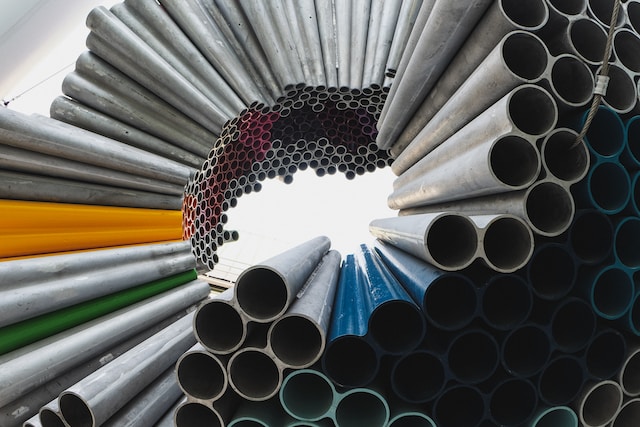When it comes to planning and executing any project, selecting the right materials is paramount. This holds true for projects in various industries, from plumbing and construction to industrial processes and HVAC systems. The choice of pipe can greatly impact the project’s success, durability, and cost-efficiency. In this blog, we will explore the key factors to consider when choosing the right pipe for your specific project.
Project-Specific Considerations
Every project is unique, and the first step in selecting the right pipe is to understand the specific requirements of your undertaking. Consider the following factors:
- Material Compatibility: Ensure that the material of the pipe is compatible with the substance it will carry. Different materials are suitable for various fluids or gases, so compatibility is crucial to avoid corrosion and contamination.
- Pressure and Temperature: Evaluate the operating pressure and temperature conditions to select a pipe that can withstand them without compromising safety or efficiency.
- Size and Dimensions: Determine the required size and dimensions of the pipe based on the flow rate and space constraints. Choosing the right size is essential for optimal performance.
- Environmental Factors: Take into account environmental conditions, such as exposure to UV rays, moisture, or corrosive substances. Some pipes are better suited to handle specific environments.
- Longevity and Maintenance: Consider the expected lifespan of the project and the maintenance requirements. Some materials are more durable and low-maintenance than others.
Types of Pipes
There is a wide range of pipe materials available, each with its own set of advantages and limitations. Here are some common types:
- PVC (Polyvinyl Chloride): PVC pipes are known for their cost-effectiveness, corrosion resistance, and versatility. They are often used in plumbing, irrigation, and drainage systems.
- CPVC (Chlorinated Polyvinyl Chloride): CPVC pipes are suitable for hot and cold water applications. They offer improved heat resistance compared to standard PVC.
- Copper: Copper pipes are valued for their durability and ability to handle high pressures. They are commonly used in plumbing and HVAC systems.
- PE (Polyethylene): PE pipes are lightweight and flexible, making them ideal for underground gas and water distribution.
- Steel: Steel pipes are incredibly strong and are often used in industrial applications and infrastructure projects. However, they require corrosion protection.
Cost Considerations
While selecting the right pipe for your project is crucial, cost is also a significant factor. It’s essential to find a balance between the material’s suitability for the project and your budget. Consider not only the initial purchase cost but also the long-term maintenance and operational costs.
Consult the Experts
If you’re unsure about which pipe to choose for your project, don’t hesitate to consult with industry experts and professionals. They can provide invaluable insights and help you make an informed decision.
At [Your Company Name], we specialize in providing high-quality pipes and components for a wide range of applications. Our team of experts is ready to assist you in selecting the right pipe for your project, ensuring its success and longevity.
The choice of pipe is a critical decision in any project. With the right material, you can enhance efficiency, safety, and overall project performance. Contact us today to explore our extensive range of pipes and receive expert guidance to make the right choice for your next endeavor.
[Contact Information and Company Logo]
Empowering Projects with the Right Pipes



